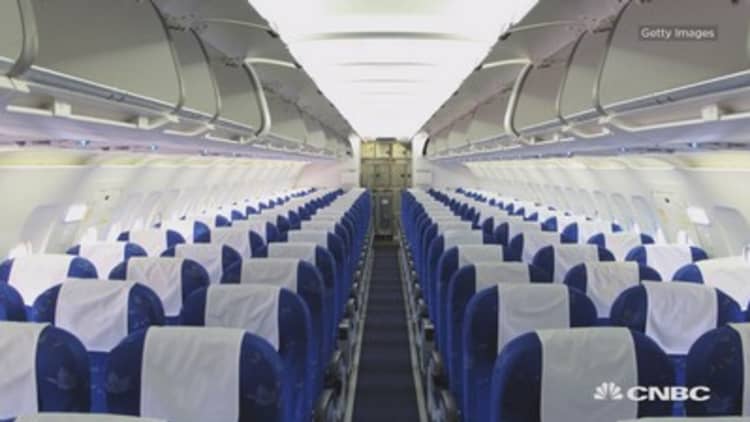
Travelers are still willing—or in some cases, forced—to pay airline fees. But there are ways to game the system.
So-called ancillary fees have become big business for airlines. In 2013 (the most recent year available), the top 20 carriers worldwide pulled in $20.4 billion on such fees, up from $2.1 billion in 2007, according to an IdeaWorksCompany report. Last year, Bureau of Transportation Statistics data show, domestic airlines pulled in more than $3.5 billion in checked baggage fees alone. (Tweet This)
More than two-thirds of travelers say they regularly pay a la carte airline fees when flying, according to a new survey from Switchfly of 2,039 adults in the U.K. In fact, most travelers prefer to do so, rather than spend more on a fare that incorporates those extras, said Diego Dugatkin, executive vice president of Switchfly, which makes software for airline loyalty programs.
Read MoreOne question that can cut your car insurance bill
The most common extras purchased: Checked bags (28 percent), preferred seating (22 percent) and in-flight meals (22 percent). The least-purchased add-ons included faster security access and lounge passes, which only 5 percent of travelers said they purchased.
If there are certain fees you pay regularly—like those bag fees—factor them in when comparing airfares, said George Hobica, founder of deal sites AirfareWatchdog.com and Tingo.com. JetBlue (for now, at least) still allows travelers one free checked bag; at Southwest, fliers get two. But even airlines notorious for their fees, like Spirit and Frontier, often have substantially lower fares that result in a better net price, he said.
Take a look at those bundled fares, too. They're often cheaper than buying extras a la carte. On a one-way May 21 American Airlines flight from New York to Los Angeles, for example, the base "choice" fare was $389; upgrading to "choice essential" to include one checked bag and priority boarding was $418. A la carte, a checked bag is $25 and priority boarding, $15 and up—bundling in services at booking saves at least $11 for a traveler who would normally add on both.
Read MoreWedding guests face big bills to dance, eat cake
Another easy way to beat some fees and reduce others is to pick the right travel rewards card. Cards from airlines including United, American and Virgin America offer users and at least one traveling companion a free checked bag each; Delta and JetBlue cardholders, among others, get a price break on in-flight purchases. Depending on the card, users may also get perks like lounge passes and priority boarding access. (Reward miles are, of course, a given.)
Most airline credit cards carry annual fees—the Virgin America Visa Signature, for example, is $49 per year and the Chase United MileagePlus Explorer is $95, with the fee waived the first year. But travelers may find they quickly pay off, especially if the freebies cover purchases you'd make anyway. At $25 per bag on United and Virgin America, for example, a couple checking one bag each would break even with one vacation. "I totally recommend those kinds of cards, even if you're just keeping them for a year where you're not paying the fee," Hobica said.


